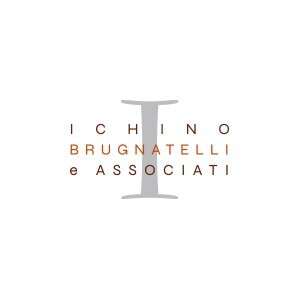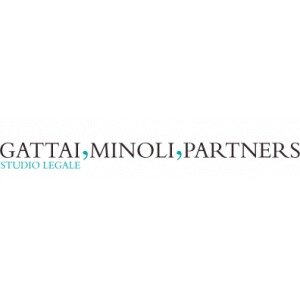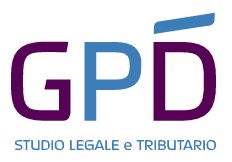Best Conveyancing Lawyers in Rome
Share your needs with us, get contacted by law firms.
Free. Takes 2 min.
Free Guide to Hiring a Real Estate Lawyer
List of the best lawyers in Rome, Italy
About Conveyancing Law in Rome, Italy
Conveyancing is the legal process of transferring the ownership of real estate property from one person or entity to another. In Rome, Italy, conveyancing involves a range of legal steps, documentation, and due diligence to ensure that property rights are correctly and securely transferred. This process requires compliance with Italian property laws and usually involves several professionals, such as lawyers and notaries, to verify that the transaction is legal, transparent, and binding.
Why You May Need a Lawyer
Engaging a qualified lawyer during the conveyancing process in Rome can protect your interests and prevent costly mistakes. Some common situations where legal help is crucial include:
- Purchasing or selling residential or commercial property
- Inheritance of property or disputes about ownership
- Identifying and addressing any debts, liens, or easements on the property
- Preparation and review of preliminary agreements and final sale contracts
- Assistance to foreign buyers unfamiliar with the Italian legal system
- Coordination with notaries and banks for registration and funding
- Ensuring compliance with local zoning, building, and tax regulations
- Resolving disputes or complications during the title search process
Professional legal guidance can make the process smoother and provide confidence in your property transaction.
Local Laws Overview
Conveyancing in Rome is primarily governed by the Italian Civil Code as well as specific regional regulations and local customs. Key aspects of local law relevant to conveyancing include:
- Role of the Notary: In Italy, a notary is a qualified legal professional who acts as a neutral third party responsible for drafting and authenticating the deed of sale, ensuring all parties are protected and that the transaction is in full compliance with the law.
- Preliminary Agreement: Known as "compromesso" in Italian, the preliminary agreement is a binding contract that outlines the basic terms of the sale before signing the final deed.
- Due Diligence: Lawyers and notaries carry out checks to confirm that the seller holds clear legal title, and that there are no outstanding mortgages, debts, or legal claims over the property.
- Registration: The final deed ("rogito") must be signed in the presence of a notary, who will then register it with the Land Registry ("Conservatoria dei Registri Immobiliari") to officially update the property records.
- Taxes and Fees: Buyers must pay various taxes including registration tax, cadastral tax, and mortgage tax. The applicable rates can differ depending on the type of property and whether it will be a primary residence.
- Foreign Buyers: Italy permits foreign nationals to purchase property, but additional bureaucratic steps may be required depending on the buyer's country of origin.
Frequently Asked Questions
What documents are required to buy property in Rome?
You will typically need valid identification, proof of funds, a tax code ("codice fiscale"), and any prior agreements like the preliminary contract. The seller must provide evidence of ownership, property plans, and compliance certificates.
Do I need to be present in Rome to complete the conveyancing process?
While it is not mandatory, it is recommended. If you cannot be present, you may appoint someone to act on your behalf through a power of attorney.
Who is responsible for checking that the property has no debts or legal issues?
Your lawyer and the notary are responsible for carrying out the due diligence necessary to identify debts, liens, mortgages, or other encumbrances affecting the property.
What are the main taxes payable when buying property in Rome?
Buyers usually pay registration tax, cadastral tax, and mortgage tax. Additional taxes may apply depending on the transaction details and whether the purchase involves a new or existing property.
How long does the conveyancing process take in Rome?
The timeline varies, but it generally takes between 6 to 12 weeks from signing the preliminary agreement to the completion of the final deed of sale.
Can a foreigner purchase property in Rome?
Yes, foreigners can purchase property in Rome, though citizens of non-EU countries might need to comply with additional legal requirements or reciprocal agreements.
What is the role of the notary in the transaction?
The notary drafts and authenticates the final deed of sale, verifies compliance with Italian law, registers the sale, and ensures transfer of title. Notaries are impartial and act on behalf of both parties.
Is a preliminary agreement binding in Italy?
Yes, the preliminary contract ("compromesso") is legally binding and obliges both buyer and seller to proceed with the sale under agreed terms. Penalties usually apply for withdrawal.
What happens if a problem is discovered after the sale?
If issues such as undisclosed defects or debts are found after the sale, you may have legal avenues for recourse against the seller, depending on the circumstances and terms of the deed.
How can I be sure of the property's boundaries and planning status?
Request an updated cadastral survey and building compliance certificates. Your lawyer or notary will verify these documents as part of their due diligence.
Additional Resources
These resources may help you further understand and navigate the conveyancing process in Rome:
- Italian Notaries Association ("Consiglio Nazionale del Notariato") for information on notarial services
- Rome Municipality Property Office for local regulations and zoning information
- Revenue Agency ("Agenzia delle Entrate") for details about property taxes and cadastral records
- Italian Bar Association ("Consiglio Nazionale Forense") for finding qualified real estate lawyers
- Embassies and Consulates for guidance to foreign nationals buying property in Italy
Next Steps
If you are considering buying, selling, or inheriting property in Rome, Italy, your first action should be to consult a qualified Italian conveyancing lawyer. Compile all relevant documentation, clarify your goals, and seek legal advice before entering into any agreements. Your lawyer will guide you through the due diligence process, coordinate with a notary, and represent your interests at every stage of the transaction. Taking early legal advice helps avoid errors and safeguard your investment. If you need recommendations or further guidance, reach out to the organizations listed in the Additional Resources section.
Lawzana helps you find the best lawyers and law firms in Rome through a curated and pre-screened list of qualified legal professionals. Our platform offers rankings and detailed profiles of attorneys and law firms, allowing you to compare based on practice areas, including Conveyancing, experience, and client feedback.
Each profile includes a description of the firm's areas of practice, client reviews, team members and partners, year of establishment, spoken languages, office locations, contact information, social media presence, and any published articles or resources. Most firms on our platform speak English and are experienced in both local and international legal matters.
Get a quote from top-rated law firms in Rome, Italy — quickly, securely, and without unnecessary hassle.
Disclaimer:
The information provided on this page is for general informational purposes only and does not constitute legal advice. While we strive to ensure the accuracy and relevance of the content, legal information may change over time, and interpretations of the law can vary. You should always consult with a qualified legal professional for advice specific to your situation.
We disclaim all liability for actions taken or not taken based on the content of this page. If you believe any information is incorrect or outdated, please contact us, and we will review and update it where appropriate.

















